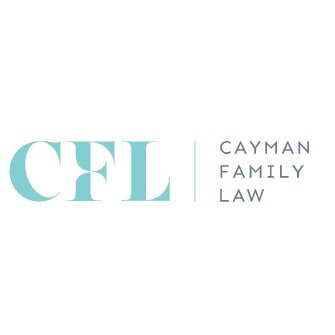Best Guardianship Lawyers in Cayman Islands
Share your needs with us, get contacted by law firms.
Free. Takes 2 min.
Or refine your search by selecting a city:
List of the best lawyers in Cayman Islands
About Guardianship Law in Cayman Islands:
Guardianship law in the Cayman Islands pertains to situations where a person is appointed to make legal decisions on behalf of another individual who is unable to make those decisions themselves. This could include minors, individuals with disabilities, or elderly persons who are not able to care for themselves. Guardianship laws are in place to protect the interests and well-being of those who are unable to advocate for themselves.
Why You May Need a Lawyer:
You may need a lawyer for guardianship issues in the Cayman Islands if you are seeking to establish or contest a guardianship arrangement, need assistance navigating legal processes, or require representation in guardianship court proceedings. A lawyer can provide valuable guidance and support to ensure that your rights and the rights of the individual in question are protected.
Local Laws Overview:
In the Cayman Islands, guardianship laws are governed by the Mental Health Law (2013 Revision) and the Children Law (2012 Revision). These laws outline the procedures for establishing guardianship, the responsibilities of guardians, and the rights of the individual under guardianship. It is important to familiarize yourself with these laws and seek legal advice to ensure compliance and protect the best interests of all involved parties.
Frequently Asked Questions:
1. What is the difference between guardianship and custody?
Guardianship involves legal decision-making authority over an individual's personal and financial affairs, while custody typically refers to the care and physical custody of a child. Guardianship is often established for individuals who are unable to make decisions for themselves, while custody pertains to parental rights and responsibilities.
2. How do I establish guardianship in the Cayman Islands?
To establish guardianship in the Cayman Islands, you must file an application with the Grand Court of the Cayman Islands. The court will review the application and determine whether guardianship is in the best interests of the individual in question.
3. Can I contest a guardianship arrangement?
If you believe that a guardianship arrangement is not in the best interests of the individual under guardianship, you have the right to contest the arrangement in court. It is advisable to seek legal representation to assist you in this process.
4. What are the responsibilities of a guardian in the Cayman Islands?
A guardian in the Cayman Islands is responsible for making legal, financial, and personal decisions on behalf of the individual under guardianship. This includes ensuring that the individual's needs are met and that their best interests are upheld.
5. Can guardianship be revoked?
Guardianship can be revoked by the court if it is determined that the guardian is not acting in the best interests of the individual under guardianship. The court will review the circumstances and make a decision based on the evidence presented.
6. What rights do I have as a ward under guardianship?
As a ward under guardianship in the Cayman Islands, you have the right to be treated with respect, have your needs met, and have your best interests considered in all decisions made by your guardian. You also have the right to contest the guardianship arrangement if you believe it is not in your best interests.
7. How long does a guardianship arrangement last?
A guardianship arrangement in the Cayman Islands can be temporary or permanent, depending on the circumstances. The court will review the arrangement periodically to ensure that it is still in the best interests of the individual under guardianship.
8. Can I appoint a guardian for my minor child in my will?
Yes, you can appoint a guardian for your minor child in your will. It is important to discuss your wishes with the person you wish to appoint as guardian and seek legal advice to ensure that your wishes are legally enforceable.
9. Can a guardian make decisions without my consent?
A guardian in the Cayman Islands is legally obligated to act in the best interests of the individual under guardianship. However, if you believe that a guardian is making decisions without your consent or not acting in your best interests, you have the right to seek legal assistance and challenge the guardian's decisions in court.
10. How can I find a reputable guardianship lawyer in the Cayman Islands?
You can find a reputable guardianship lawyer in the Cayman Islands by conducting research, asking for recommendations from trusted sources, and reaching out to legal organizations for assistance. It is important to choose a lawyer who has experience in guardianship law and can provide you with the guidance and support you need.
Additional Resources:
For more information on guardianship law in the Cayman Islands, you can visit the Cayman Islands Government website or contact the Family Resource Centre for assistance. These resources can provide valuable information and support for individuals in need of legal advice on guardianship issues.
Next Steps:
If you require legal assistance with guardianship issues in the Cayman Islands, it is advisable to consult with a reputable guardianship lawyer who can provide you with guidance and representation. Contacting the Grand Court of the Cayman Islands or seeking assistance from legal organizations can also help you navigate the legal processes involved in establishing or contesting a guardianship arrangement.
Lawzana helps you find the best lawyers and law firms in Cayman Islands through a curated and pre-screened list of qualified legal professionals. Our platform offers rankings and detailed profiles of attorneys and law firms, allowing you to compare based on practice areas, including Guardianship, experience, and client feedback.
Each profile includes a description of the firm's areas of practice, client reviews, team members and partners, year of establishment, spoken languages, office locations, contact information, social media presence, and any published articles or resources. Most firms on our platform speak English and are experienced in both local and international legal matters.
Get a quote from top-rated law firms in Cayman Islands — quickly, securely, and without unnecessary hassle.
Disclaimer:
The information provided on this page is for general informational purposes only and does not constitute legal advice. While we strive to ensure the accuracy and relevance of the content, legal information may change over time, and interpretations of the law can vary. You should always consult with a qualified legal professional for advice specific to your situation.
We disclaim all liability for actions taken or not taken based on the content of this page. If you believe any information is incorrect or outdated, please contact us, and we will review and update it where appropriate.
Browse guardianship law firms by city in Cayman Islands
Refine your search by selecting a city.











